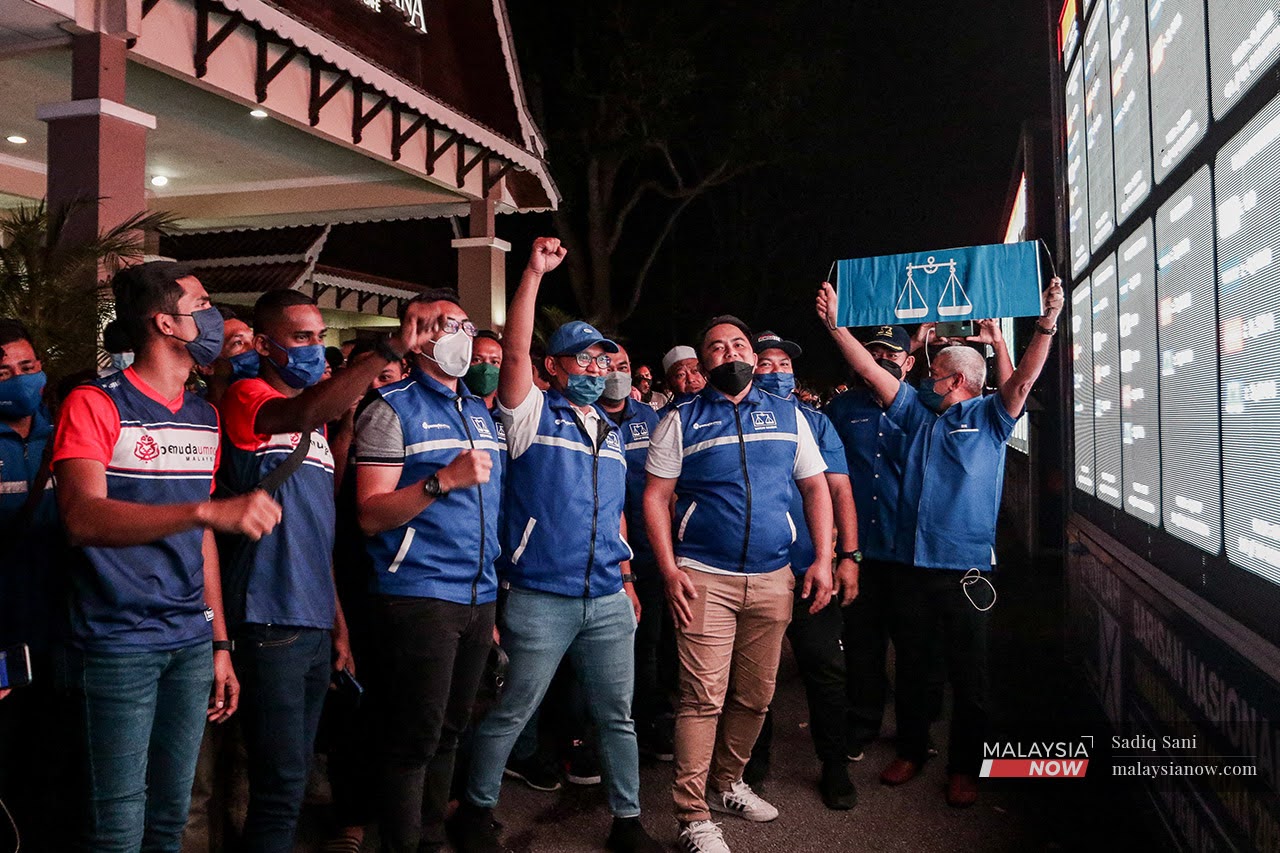PN swallowed up PH’s Malay votes at Melaka polls, say analysts
While PN won only two seats at the Melaka state election, it also succeeded in splitting the Malay vote, they say.
Just In
While Perikatan Nasional (PN) emerged last among the three main political blocs in the race for seats at the Melaka state election, it obtained enough votes to jeopardise Pakatan Harapan’s (PH) performance especially among the Malay voters, analysts say.
When contacted by MalaysiaNow, they said Barisan Nasional’s (BN) victory in the polls was a foregone conclusion given that Melaka is seen as an Umno stronghold.
But among the Malay electorate who did not support BN, they said, Bersatu had “swallowed up” more voters than PH.
Oh Ei Sun, a political analyst with the Singapore Institute of International Affairs, said PN had succeeded in splitting the vote, detracting from both PH and BN but having a bigger impact on the coalition led by PKR chief Anwar Ibrahim.
“Not only did PH votes go to PN, they also failed to attract the votes of the Malays who were unhappy with BN,” he told MalaysiaNow.
“Instead, those votes went to PN as voters were not satisfied with what PH had to offer and disappointed with their performance since 2018.”

Amanah president Mohamad Sabu previously said that PH’s loss was due to Bersatu, which had helped capture the Malay vote at the 2018 general election.
“If (the votes gained by Bersatu) were combined with the popular vote achieved by PH of 114,457, it would mean a total of 147,457 compared to BN which only received 122,741,” he said in a statement on Sunday.
Ahmad Martadha Mohamed, an anlayst with Universiti Utara Malaysia, said Umno had had the advantage as 19 of the state constituencies in Melaka are Malay-majority seats.
“Umno’s grassroots support is strong, so PH and PN were left to fight over the support of the Malays who rejected BN,” he said.
Chinese voters unhappy with DAP?
James Chin of the University of Tasmania meanwhile said PN’s success in winning votes was not the only factor in PH’s defeat.
He said Chinese voters were unhappy about the memorandum of understanding (MoU) inked between PH and the government over which DAP had remained silent.

“I believe the Chinese voters were dissatisfied with DAP,” he said. “This, combined with the low voter turnout, gave BN the edge.”
BN returned to form the state government in Melaka after winning 21 of the 28 seats it contested. PH meanwhile won five seats and PN, two.
The results came as a surprise especially for PH whose component PKR lost all 11 seats it contested while Amanah only won the Bukit Katil seat.
BN won 38.39% (122,741) of the popular vote while PH and PN obtained 35.65% (113,968) and 24.47% (78,220) respectively.
Oh said while the Melaka election showed BN’s success in making a comeback there, PN’s achievements, although small, were enough to split the votes for BN and PH.
“BN’s success in Melaka will boost Umno’s confidence,” he said, adding that some believed it would be able to leave PN.
“But this might have a negative effect seeing as PN won a significant number of votes in Melaka and could be a vote-breaker in the next general election.”
Martadha meanwhile said the results in Melaka could not be made a benchmark for BN’s performance in the future, adding that the coalition would still need help from parties like PAS and Bersatu in order to win the next election.

“Umno needs to learn some lessons from the Melaka polls, such as PH’s decision to take in the assemblymen who jumped ship, as well as the unexpected shift in Chinese votes,” he said.
“Umno cannot afford to be arrogant. The help of both PAS and Bersatu at the next general election will still be relevant.”
But the biggest surprise for Chin was the performance of BN components MCA and MIC.
“This looks like a rebirth for BN,” he said. “But I also think that support for these parties may be limited to Melaka.”
He said the expected increase of some eight to nine million voters aged 18 to 19 at the next general election would also mean a different playing field.
He also said the Melaka election had been an anomaly as political parties were not allowed to campaign face-to-face.
“This will test all parties in new ways of campaigning ahead of the Sarawak state election to come,” he said.
“It is also important for us to see if Malay parties like Umno and Bersatu will continue to attract the Malay vote.”
Subscribe to our newsletter
To be updated with all the latest news and analyses daily.




